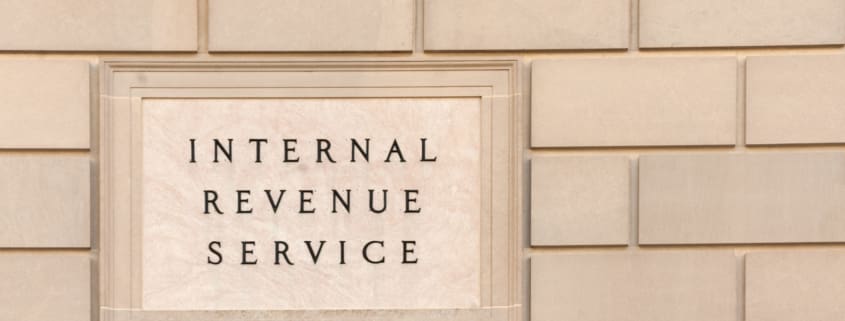What Does an IRS Letter Look Like and How Should I Respond?
Receiving a letter from IRS is often something that most don’t consider until forced to do so. Until taxpayers receive an IRS letter, there is often no reason to concern themselves on the subject. That being said, experiencing such a receipt is likely to cause a state of concern.
In the event that you receive a letter from IRS, there is no reason to be concerned. There are various types of IRS Notices, some of which may not necessarily be negative. That being said, the most efficient first step to protect yourself is to reach out to a tax professional to help defend your case.
We’re sharing the details of what to expect and how to prepare if you receive an IRS notification letter.
How will I receive notification from IRS?
IRS sends all notices and letters by mail. They will never contact you for personal or financial information by email or through social media.
Why is IRS notifying me?
There is a multitude of various reasons that you may receive a notice from IRS. They include:
- You have a balance due
- You are due a larger or smaller refund
- IRS has a question about your tax return
- Need to verify your identity
- IRS needs additional information
- Your return has changed
- Notification of delays in processing your return
What does an IRS letter look like?
The notice or letter that you receive from IRS will specifically detail the reason for their contact in addition to specific steps to follow to handle the issue. If you believe your letter to be fraudulent or fake, you can contact IRS to report a suspected phishing scheme.
What to do when you receive a letter from IRS?
Read
- The first step when you receive a letter or notice from IRS is to read it in detail. Notices shared by IRS contain details relevant to the claim and specific instructions on how you should handle the issue. If the letter is to advise you of a change in your tax return, you should be sure to closely compare any changes to your initial tax return.
Contact a tax professional
- As soon as you receive a letter or notice from IRS, it would benefit you to solicit advice from a tax professional. Consulting a professional can help you protect yourself in the event of an audit. Additionally, they may be able to help you settle your debt with IRS in your favor. Failing to consult a tax professional when dealing with IRS may leave you confused and challenged with the complexities of dealing with IRS.
Respond
- If your notice or letter requires an immediate response, you should be sure to prioritize your response by the required date. Failing to do so may result in either additional interest and penalty charges or the loss of your ability to appeal your rights should you disagree.
Pay
- If your IRS letter serves to inform you that you have a balance due, the best practice is to pay it in full if possible. If you are not able to immediately pay your balance in full, IRS offers options to apply for an online payment agreement or offer in compromise.
Retain a copy of your letter or notice
- It’s imperative that even once you have settled any issues notified in your letter from IRS, you retain any and all documentation in case it needs to be referenced at a later date.
Contact IRS
- In the event that you disagree with the notice or letter that you receive from IRS, you can contact them directly to dispute the claim. You also may need to contact IRS if they have requested additional information from you or if you have a balance to be paid. IRS can be contacted by phone or mail. It should be noted, however, that when choosing to contact by mail, the expected response time is approximately 30 days.
Many people don’t know the options that are available to them when dealing with IRS. Even if you owe a lot on back taxes, you don’t have to worry. Our committed tax law firm can answer your questions, explain your options, and guide you towards the best plan for your unique situation.




